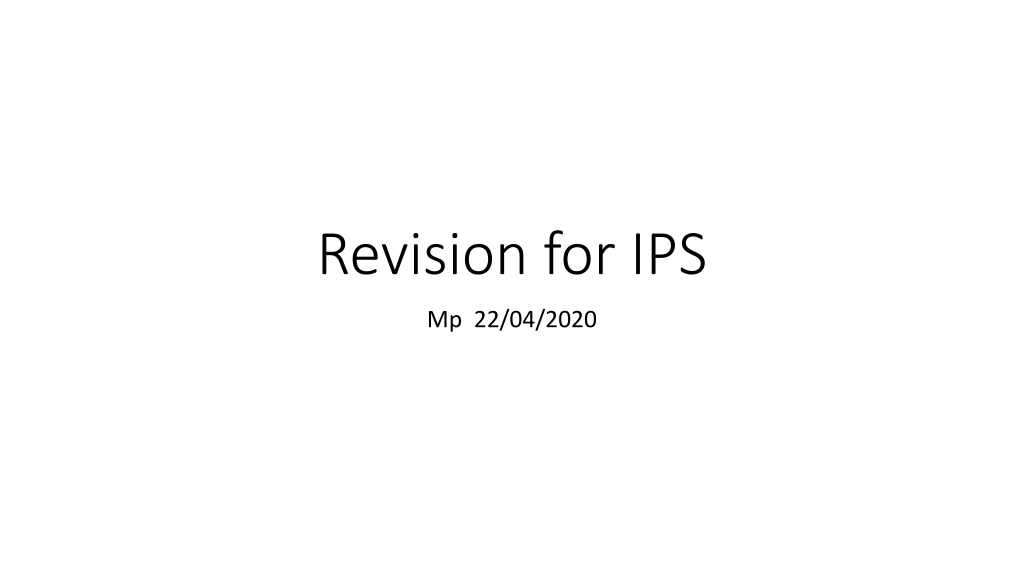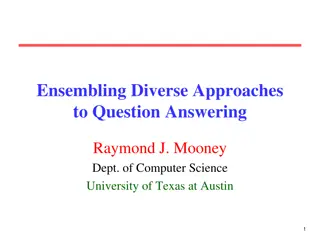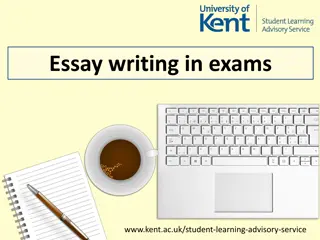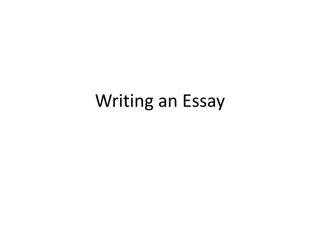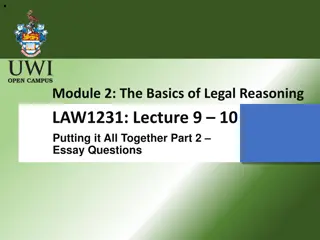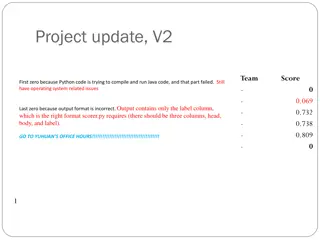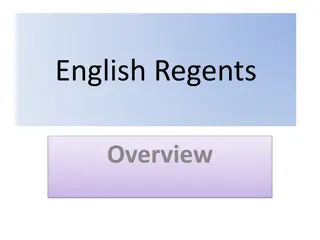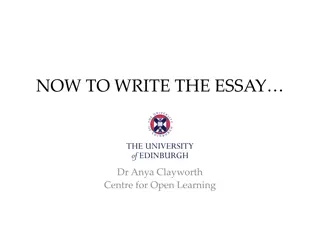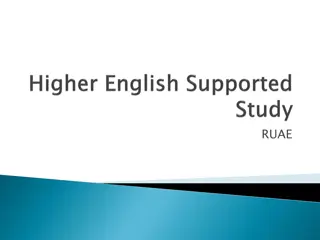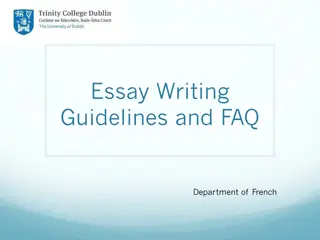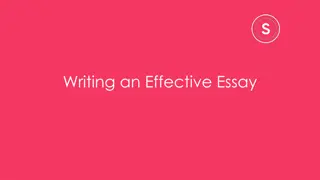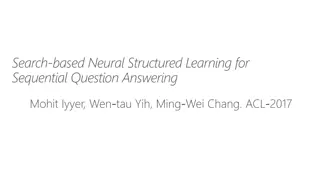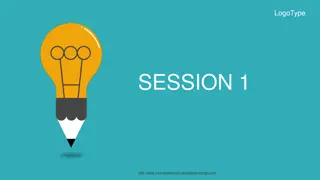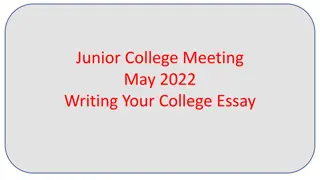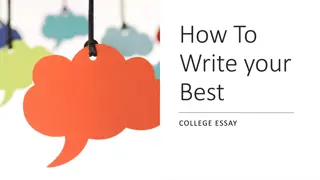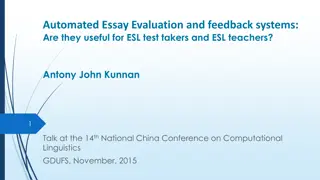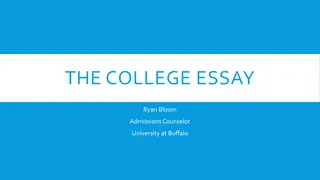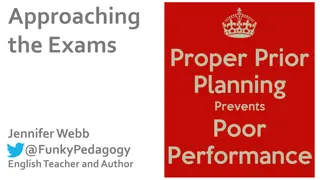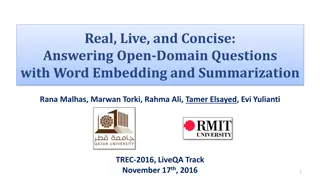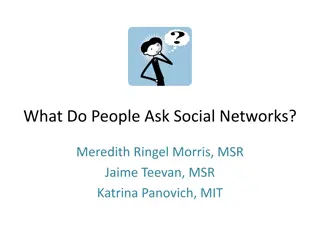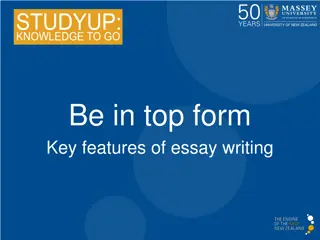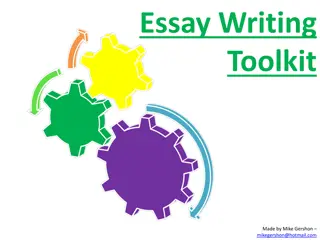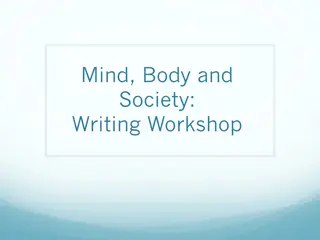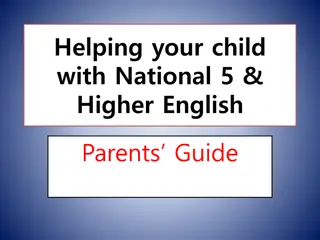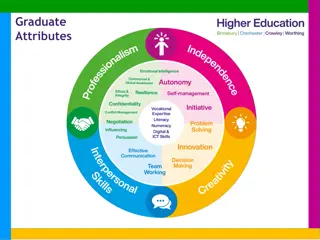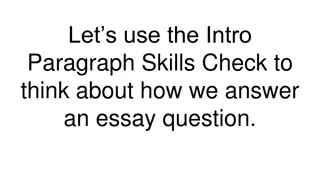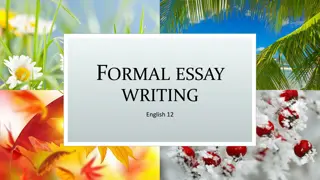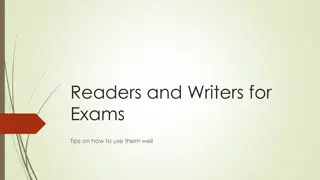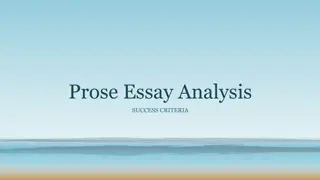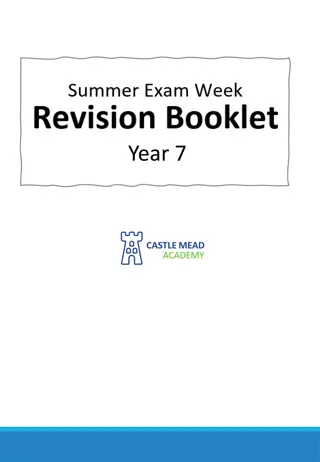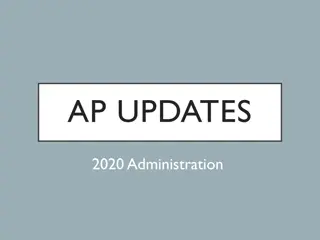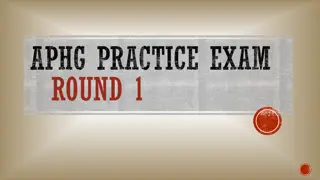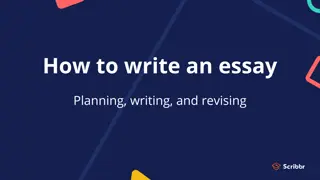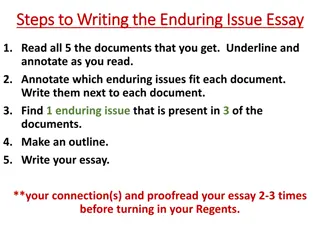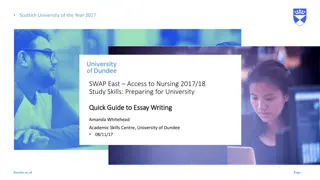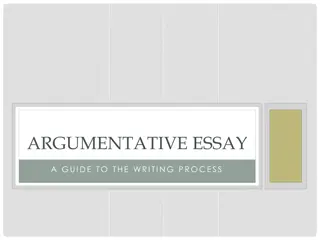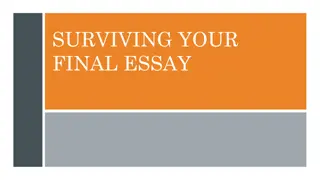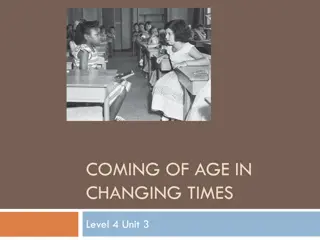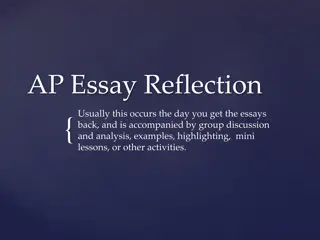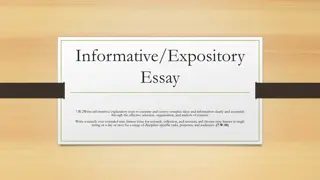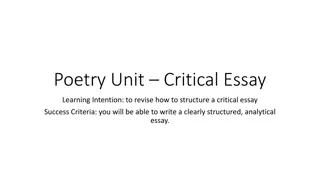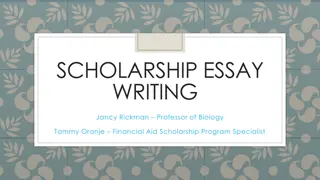Effective Strategies for Answering Essay Questions in Exams
Learn essential tips for addressing essay questions effectively. Understand the importance of staying focused on the central issues raised by the question, organizing your points logically, and avoiding irrelevant tangents. Follow rules to answer concisely and thoughtfully while demonstrating your understanding of the topic. Practice critical thinking to provide insightful responses within the word limit.
Download Presentation

Please find below an Image/Link to download the presentation.
The content on the website is provided AS IS for your information and personal use only. It may not be sold, licensed, or shared on other websites without obtaining consent from the author. Download presentation by click this link. If you encounter any issues during the download, it is possible that the publisher has removed the file from their server.
E N D
Presentation Transcript
Revision for IPS Mp 22/04/2020
What the job is You are asked to spend an hour writing your answer and we mean it that s enough! Extra-long answers are rarely better and often reveal weaknesses (and there is a word limit of 1500 words each essay). You have to answer two questions so divide your attention and time accordingly Use your opening paragraph to indicate the central issue(s) you think the question is raising and how you will address it/them Have a list of points you want to make, think about the order you want to make them so that they add up into an argument, and use a new paragraph for each point.
Rules 1.to 20 Answer the question, Answer the question, Answer the question, Answer the question, Answer the question, Answer the question, Answer the question, Answer the question, Answer the question, Do not copy politicians on the news although do study them to see what it is like to avoid answering simple questions! But don t do as they do! And also think about how good people s questions are are they open ended, or are they trying to force a particular answer? At least reflect a bit on questions: eg: Mrs Smith, have you stopped beating your husband? Does the government think it is acceptable to have failed to stockpile PPE? etc. Doing it helps focus your mind on what questions are searching for (or failing to search for!).
How to answer a question? One way to think about exam questions is that they identify a problem or issue that they want you to talk about. But they do not always say precisely what that problem is because they are testing whether you know the material well enough to be able to see the issue they are pointing to. What examiners want to see is that you know what the issue is, or that you have ideas about what it might be, that you can describe it and point to the different ways it may be understood, and that you have a view about how best to understand it. Sometimes it helps to play around with the question a bit to see what s at issue (and I ll suggest a way of doing that after the next section (from slide 12))
For example:2018, Q 5 Despite its emphasis on consent. Social contract theory covers a wide spectrum compatible equally with absolutism or popular government. How is this possible? Answer with reference to at least TWO texts you have studied. The question is pretty up-front about what it s asking how come social contract theory can come up with accounts as varied as Hobbes s absolutism, Locke s emphasis on freedom, or Rousseau s popular sovereignty? But you don t answer the question simply by saying Hobbes comes up with X and Locke with Y its asking you to think about where their underlying assumptions differ and how that affects their argument
so to answer it youd need to say something in the opening paragraph like While social contract theories may look superficially similar, they often draw on very different assumptions and axioms, which serve to frame the character of the contract that is formed. In answering this question I want to look at the very different accounts given of the state of nature by Hobbes and Locke, and to examine the way in which they use the language of natural law and natural rights in very different ways. What we will see is that, despite the fact that for both the contract is a pivotal moment, the problem that the contract is solving is different for each, and the outcome of the contract is accordingly also very different, with Hobbes arguing for absolutism and Locke retaining a strong emphasis on the people as the true legislature whose will the executive is established to serve.
What that paragraph does is: show that you see the problem the question refers to show that you have an understanding as to how that arises (very different accounts of the state of nature, and different uses of natural rights and natural law in Hobbes NR is prior with the right to everything you need to preserve yourself in Locke NL is prior put upon the earth to serve His will (God s) and therefore bound to obey him and his law, that reason allows us to deduce. And you can go on to say: That in Hobbes the SoN is a constant state of war meaning you need a strong power to constrain men; while in Locke, there are increasing inconveniences, that requires something more like a coordination solution, so that we abide by a common reading of the law of nature.
and That in Hobbes s contract men have to give up their natural right to all they judge necessary to preserve themselves and to the relentless search for power over power and have to transfer it to the sovereign thereby authorizing all his actions and having no right against him except the right of self-defence in extremis should the subject s life be threatened That in Locke you cannot give up your natural right because you have it as a right against others based on your more fundamental duty to comply with your understanding of God s will so you entrust the community with legislating for a common reading of the law of nature, and entrust the magistrate with executing the law resolved upon. But that it is a relationship of trust, not transfer; and if the civil power acts in ways that threaten the lives, liberties and property of is subjects, then they have a right indeed a duty to resist it.
you might then Talk about why they are so different Hobbes s secularism; Locke s theology - Hobbes s radically anti-social account of the SoN; Locke s more Aristotelean view of society as natural to humankind Hobbes exp of the civil war; Locke s rather different background in the politics of resistance to a monarch that threatens the collective religious choice of the people. Might also look at the nature of the contract both horizontal (between people), but Hobbes adds a contract that transfers people s pooled rights to the sovereign; Locke s horizontal contract allows no more than a relationship of trust with institutions created to serve their purposes.
at least two? Should you do a third or fourth writer since it says at least Two not no more than two ? You don t have much time depth is better than breadth and depth is the more challenging thing to attain. When people go for breadth its often because they don t have much to say about any one person. So don t try and do too much Keep it sharp, focused and clearly argued And then conclude with a brief paragraph that points to the way you have answered what you were asked
Dont: Don t keep referring directly to the question if you set the answer up clearly in your first paragraph it will be clear that each point you make adds cumulatively to your answer to the precise challenge the question raises And you don t need to provide references or quotations and if you do quote keep them brief and make sure you explain what you take them to demonstrate.
How to think more carefully about a question? 2017: What was the influence of Montesquieu s Spirit of the Laws on EITHER Rousseau s Social Contract OR The Federalist Papers? This is pretty straightforward BUT . Try the following: Turn it into a quotation: viz Montesquieu had a profound influence on Rousseau s Social Contract And then ask: What would you have to believe, to believe that?
What would you have to believe to believe that You can start by saying always very difficult to be sure about influence, so we have to begin by looking at similarities and differences in their positions While there might appear to be a huge gulf between Montesquieu s nascent sociological reflections and Rousseau s social contract, I want to argue that Rousseau remained profoundly affected by a number of key elements in M s account: Viz the legislator; the importance of law and esp those engraved on the hearts of the people, and the social conditions for a free people (R s SC Bk 2 ch 7-12); his fascination with republican government as a government of virtue; and his horror of despotism
But then ask what would you have to believe that that wasn t true They seem to be engaged in different projects M to shore up systems against despotism; R to create a virtuous republic M sees republics as things of the past and sees the current challenge as managing commercial monarchies ; R seems to want to try to create a classical republic of virtue and has no room for a positive view of commercial monarchies Montesquieu s liberty is about security; Rousseau s is about living in accordance with a law that we prescribe for ourselves Montesquieu is a conservative liberal Rousseau has been accused of totalitarianism
but. You can then ask How would those who emphasize the similarities respond to this account of their differences Question how classical R s republic is its not about military glory and might be closer to an account that emphasizes security Think about their reactions to monarchies aggrandizement (and link to R s Discourse on the origin of inequality) And so on
the point is - that Thinking things through in this way gives you a different perspective on the question It makes you think through the steps It encourages you to see the pros an cons of each move you make And above all.. It keeps you firmly focused on the question you just keep digging deeper into the interpretation of their relative positions and how far it is plausible to see R as influenced by M.
Revision strategy: On responding to an exam paper Take a paper you haven t seen before Spend 10 minutes going through it to identify the two questions you think you want to answer Set them aside chose the next two Try and say what those second two are really asking about and what you would be wanting to say And spend 10-15 minutes each on those second two questions THEN turn to your top 2 and do the same
and then? THEN sit back and ask which of the four you now think would be the most interesting and creative answer Most people play safe but playing safe when you first see something produces different results from when you have had a chance to think about things more deeply. It makes sense to play around, take risks when they aren t costly, and shake things up a bit because you often have things to say that take a while to come to the surface!
Additional suggestions: When you are answering a question write it down first, think about what you want to say, and then ask whether that ticks all the boxes that is if the question has the word misery in the title you need to address that; if you are asked about critiques of private property you need to talk about critiques not just (maybe not even) justifications. So go back to the question you have written down and make sure (tick off) each of the different components in the question. The golden rule is if its in the question its because we want you to think and talk about it!
What is relevant How does Hobbes justify absolute sovereignty? Many historians will start the answer by talking about the civil war and how that broke out and what position Hobbes was in, and how he was in France, and so on and so on. DON T Its not what the question is asking; you get no marks for material that is not relevant to the question; and you should be focusing your attention on that! If its relevant, bring it into the argument you make if it is not, leave it out!
On criticism and secondary literature This course is heavily weighted to primary texts but the following applies to all courses. What you are doing in answering a question is making an argument and deploying evidence to support that argument. Rehearsing what other people say is only relevant if you are asked to do so. Of course you can refer to them if they help your argument- or you can attack their position if that helps you make your argument but don t discuss them for the sake of discussing them! It is your argument, your take on the question, your judgment that matters we want to know what you know and what you want to argue its as simple as that!
